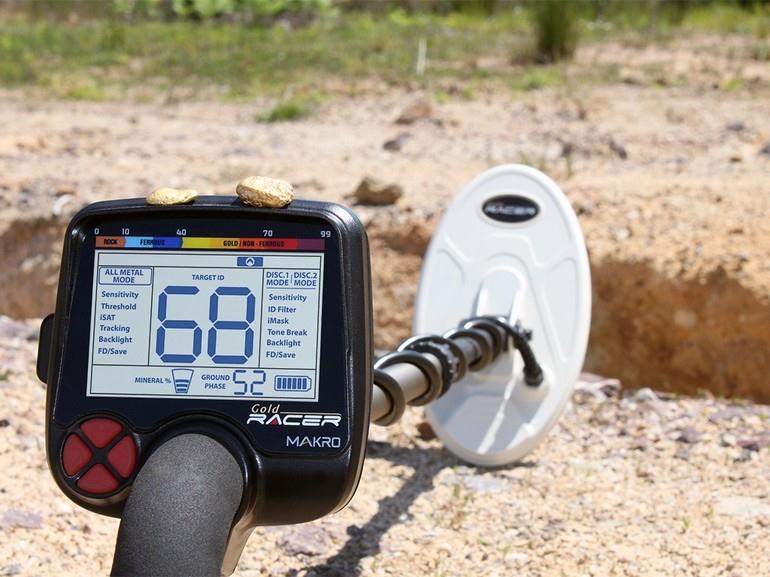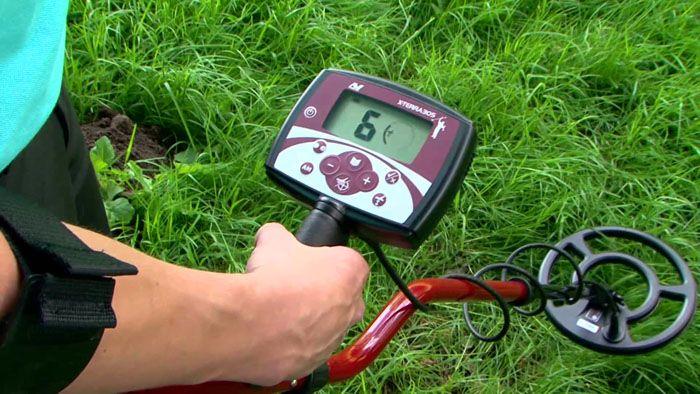best reviews metal detectors for gold
Interesting information about treasure hunters
As you know, in August last year the so-called law on metal detectors came into force. This has raised a lot of questions on the part of those citizens for whom the so-called "device search" is a favorite hobby. Let's find out what this law is and where you can dig with a metal detector by law.
The full name of the adopted law is "On amending certain laws of the Russian Federation in terms of the suppression of illegal activities in the field of archaeology" of 23.07.2013, No.245-Fz. According to it:
The state is the owner of ANY finds from the sphere of archaeological heritage, as well as archaeological objects, which are found by citizens on the surface, in the earthen layer and under water.
The full name of the adopted law is "On amending certain laws of the Russian Federation in terms of the suppression of illegal activities in the field of archaeology" of 23.07.2013, No.245-Fz. According to it:
The state is the owner of ANY finds from the sphere of archaeological heritage, as well as archaeological objects, which are found by citizens on the surface, in the earthen layer and under water.
For the removal of archaeological finds from the site of their location, in case it entailed the destruction of the cultural layer, criminal responsibility is provided. It is important that the cultural layer is a layer under water or in the ground, if it contains traces of human activity, which is more than a hundred years old, according to the legislation.
Further, the law deals with the acquisition, marketing of cultural heritage items.
At first glance, this law finally deprives citizens of the right to dig with a metal detector anywhere. But it's not. In fact, at its core, the law remained unchanged in the sense that the search with a metal detector and unauthorized excavations have been banned since the days of Soviet rule, and remained forbidden. But at the same time there are a number of situations in which these actions are quite legal.
Further, the law deals with the acquisition, marketing of cultural heritage items.
At first glance, this law finally deprives citizens of the right to dig with a metal detector anywhere. But it's not. In fact, at its core, the law remained unchanged in the sense that the search with a metal detector and unauthorized excavations have been banned since the days of Soviet rule, and remained forbidden. But at the same time there are a number of situations in which these actions are quite legal.
First, you can search and dig in places where there are no records of old settlements and other traces of human activity over a century. If any archaeological objects are found in such a search, they must be handed over to the state, because, as the law says, the state owns everything found in the ground or under water.
Secondly, let's allow a search with a metal detector on public beaches, because there is no cultural layer there, and the finds, respectively, can not be of historical value and are not archaeological objects.
Thirdly, it is possible to search the fields where tractors plow every year, where there is also no cultural layer.
Secondly, let's allow a search with a metal detector on public beaches, because there is no cultural layer there, and the finds, respectively, can not be of historical value and are not archaeological objects.
Thirdly, it is possible to search the fields where tractors plow every year, where there is also no cultural layer.
what does discrimination mean on a metal detector
Very powerful yet simple home made metal detector DIY
Simple metal detector on two chips NE 555
Smartphone Homemade metal detector
Tesoro Tejon vs Garrett ACE 250 discrimination test
Very powerful yet simple home made metal detector DIY
Simple metal detector on two chips NE 555
Smartphone Homemade metal detector
Tesoro Tejon vs Garrett ACE 250 discrimination test
Video how to make a metal detector
Where to look for a metal detector
Where to look with a metal detector
Where to dig with a metal detector by law
Where to find a metal detector
Where to look for a metal detector
Where to find a metal detector
What a metal detector is for
How to choose a metal detector
How to choose a metal detector to search
How to look without a metal detector
How to look for a metal detector
What's the name of the metal detector
How to find gold metal detector
How to find metal detector
How to set up a metal detector
How to set up a metal detector
How to set up a garrett metal detector
How to set up a metal detector x terra 705
How to set up a metal detector garrett
How to set up a metal detector
How to check the metal detector
How to pass a metal detector
How the metal detector works
As a metal detector itself
How to make a metal detector at home
How to make a reel on a metal detector
How to make a metal detector pirate
How to make a metal detector with your hands at home
How to make a powerful metal detector
How to make a simple metal detector
How to make a homemade metal detector
How to assemble a metal detector pirate
Stores where metal detectors are sold
Metal detector for gold how to choose
Metal detector how to choose to search for gold
What to find a metal detector
What they find as a metal detector
What is a metal detector
Where to look for a metal detector
Where to look with a metal detector
Where to dig with a metal detector by law
Where to find a metal detector
Where to look for a metal detector
Where to find a metal detector
What a metal detector is for
How to choose a metal detector
How to choose a metal detector to search
How to look without a metal detector
How to look for a metal detector
What's the name of the metal detector
How to find gold metal detector
How to find metal detector
How to set up a metal detector
How to set up a metal detector
How to set up a garrett metal detector
How to set up a metal detector x terra 705
How to set up a metal detector garrett
How to set up a metal detector
How to check the metal detector
How to pass a metal detector
How the metal detector works
As a metal detector itself
How to make a metal detector at home
How to make a reel on a metal detector
How to make a metal detector pirate
How to make a metal detector with your hands at home
How to make a powerful metal detector
How to make a simple metal detector
How to make a homemade metal detector
How to assemble a metal detector pirate
Stores where metal detectors are sold
Metal detector for gold how to choose
Metal detector how to choose to search for gold
What to find a metal detector
What they find as a metal detector
What is a metal detector
Comments & Responses
Leave a Reply
Your email address will not be published. Required fields are marked *
Comment
Leave a Reply
Your email address will not be published. Required fields are marked *
Comment
Name *
Email *
Website
What is a metal detector and how it works
How the metal detector works and more for beginners
What is a metal detector and how does it work?
How manual and arched metal detector works
Best metal detector for gold
What can be found with a metal detector?
What can be found with a ground metal detector
Options for balancing the ground of metal detectors
What benefits can be brought to treasure hunters of downpours
What can you find with a metal detector?
How to use a metal detector and what to find
What can i find with a metal detector?
Looking for a treasure without a metal detector
Finds that can be made with a metal detector
Is it possible to find a treasure in Estonia and what to do if something valuable has fallen into your hands?
Named places where in the suburbs with a high probability you can find a treasure
What and where can be found with a metal detector?
How the metal detector works and more for beginners
What is a metal detector and how does it work?
How manual and arched metal detector works
Best metal detector for gold
What can be found with a metal detector?
What can be found with a ground metal detector
Options for balancing the ground of metal detectors
What benefits can be brought to treasure hunters of downpours
What can you find with a metal detector?
How to use a metal detector and what to find
What can i find with a metal detector?
Looking for a treasure without a metal detector
Finds that can be made with a metal detector
Is it possible to find a treasure in Estonia and what to do if something valuable has fallen into your hands?
Named places where in the suburbs with a high probability you can find a treasure
What and where can be found with a metal detector?

